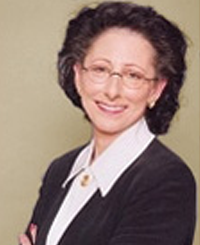Tips for Getting Eldercare – And Your Life – Under Control
Because Eldercare
is often unexpected, intermittent (at least initially), and always
unpredictable, few of us realize the time and toll it\’s taking
on us personally in terms of money, relationships, and peace of
mind – to mention nothing of our sanity! It\’s also difficult
to accurately predict the true length of our commitment. In fact,
according to the 1999 MetLife Mature Market Institute Study, a majority
of those anticipating 1 to 2 years of caregiving actually spent
4 or more years providing care. Add to that all the complicated
bureaucratic and legal restrictions, such as HIPAA, Medicare, insurance
plan changes, and the paperwork that goes with it, it\’s not
surprising we often find ourselves overwhelmed, exhausted, and just
trying to cope.
My Generational
Coaching clients often say to me “I have too much stuff going
on – I don\’t have time to get organized!” However,
when they start tracking the time they spend looking for and/or
duplicating information, they are shocked at how much time and energy
they\’re wasting – especially those who are a long-distance
Caregiver and/or sharing caregiving responsibilities with others.
Tip
#1 – SORT
- Label the
files however makes sense to you. For example: legal, medical,
insurance, home, car, Social Security/Medicare, bank, etc. - Sort by current
year, past year, and all previous years. - Toss obvious
garbage like envelopes, but don\’t worry about serious purging
in this initial sort.
Starting
with the current year, sort chronologically. Eventually you
may want to put everything into chronological order, but that
can wait.
use file jackets, color-coded files, or shoe boxes, the important
thing to remember is that it doesn\’t have to be elaborate.
Nor do you have to go for perfection. Try as I will to put everything
into the right file immediately, I still have one labeled “Mom\’s
Stuff To Be Filed” that I sort about once a month.
Tip
#2 – COMPILE
Make a list
of important providers (doctors, lawyer, accountant, stockbroker,
etc.), accounts (insurance, bank, investment, etc.), and vital
documents (Living Will, Health Care Proxy, Power of Attorney,
original birth/death certificates, marriage license, Will, etc.)
You can use a sheet of paper or, for a complimentary copy of the
AgeWiseLiving Legal & Financial Organizer which includes a
list of vital documents, go to http://www.agewiseliving.com/newsletters.htm.
working with your aging loved one, this would be a good time to
talk about the status of their Living Will, Health Care Proxy,
etc.
#3 – COPY
Medical
History To keep the medical information up-to-date, ask to
receive all test results, etc. in writing “for the file”.
Information
file to every doctor\’s appointment.
this, remember . . . simple is best and the time you invest now
will save you enormously in time, money, relationships, and peace
of mind in the future.





